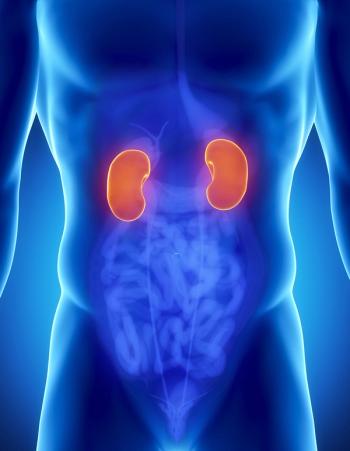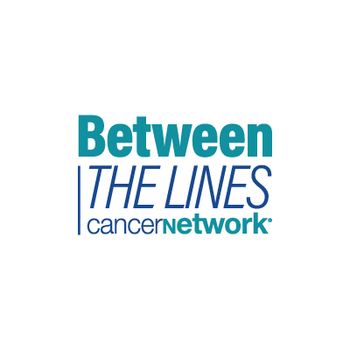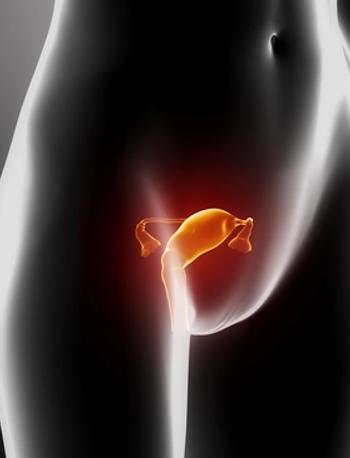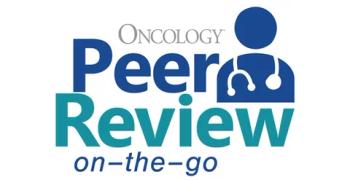
Sara Hurvitz, MD, spoke to the difficulty of treating HER2-positive and advanced HER2-positive breast cancer and how the efficacy of novel agents such as fam-trastuzumab deruxtecan-nxki could make a difference in treating the disease.

Your AI-Trained Oncology Knowledge Connection!


Sara Hurvitz, MD, spoke to the difficulty of treating HER2-positive and advanced HER2-positive breast cancer and how the efficacy of novel agents such as fam-trastuzumab deruxtecan-nxki could make a difference in treating the disease.

Findings from the phase 3 DeFi study indicated that treatment with nirogacestat met the trial’s end points in patients with progressing desmoid tumors.

Alina Markova, MD, speaks about future research efforts for topical ruxolitinib INCB018424 phosphate 1.5% cream in patients with non-sclerotic and superficially sclerotic chronic cutaneous graft-versus-host disease, and multidisciplinary implications of current research.

Interim results from the phase 2 PADRES trial demonstrated that partial nephrectomy may be possible for a subgroup of patients with clear cell renal cell carcinoma with complex masses who received neoadjuvant axitinib.

Non-White Hispanic pediatric patients with neuroblastoma appear to have worse overall survival outcomes vs other patient subgroups.

Results from the phase 2 BIONIKK trial highlighted the feasibility and positive impact of selecting patients with metastatic clear cell renal cell carcinoma for treatment with nivolumab plus or minus ipilimumab and a VEGFR-tyrosine kinase inhibitor based on molecular phenotype.

Experts discuss use of ponatinib in chronic myeloid leukemia and optimal dosing.

Uday R. Popat, MD, spoke about where he sees future research efforts headed regarding post-transplant cyclophosphamide to prevent graft-vs-host disease for patients with acute myeloid leukemia after transplant and how these results could impact the standard of care.

Patients who are black had a longer overall survival after investment was made for public welfare programs concerning those with cancer.

The findings of this retrospective study of more than 25,000 patients with cancer newly diagnosed during the COVID-19 pandemic highlight a need to reduce the inequities in telemedicine use for cancer care, according to the study’s lead author.

A Black patient with metastatic breast cancer explained that the results of the survey show that more work must be done by all stakeholders to increase the participation in clinical trials to accurately assess treatments in diversified populations.

The phase 3 ALTER 0303 trial demonstrated that although patients with non–small cell lung cancer and liver metastases have a worse prognosis than those without, treatment with anlotinib may result in better progression-free survival vs a placebo.

Early discontinuation of a hypomethylating agent was associated with an increase in economic burden for those with refractory anemia with excess blasts, a diagnosis that overlaps with high-risk myelodysplastic syndrome.

Expert oncologists review safety/efficacy data behind mobocertinib, a small molecule tyrosine kinase inhibitor, in patients with EGFR exon 20 insertion–positive metastatic non–small cell lung cancer.

Sara Hurvitz, MD, spoke about to recent approval of fam-trastuzumab deruxtecan-nxki in the second-line setting for patients with HER2-positive breast cancer.

Patients with acute myeloid leukemia who are 75 years or older or ineligible for induction chemotherapy due to comorbidities can now receive treatment with ivosidenib and azacitidine.

The JAVELIN Bladder 100 trial demonstrated that avelumab plus best supportive care prolonged overall survival vs best supportive care alone for patients with advanced urothelial carcinoma.

Findings from the phase 1/2 VICTORIA trial showed the combination of vistusertib plus anastrozole improved response and survival for patients with hormone receptor–positive recurrent or metastatic endometrial cancer vs anastrozole alone.

Seribantumab has been granted fast track designation by the FDA for those who have positive locally advanced or metastatic solid tumors with NRG1 gene fusions.

An expert in hematology/oncology, Dr Yi-Bin Chen, provides insight on chronic GvHD, with a focus on early detection of disease and therapeutic options for the management of steroid-refractory chronic GvHD.

Alina Markova, MD, highlights the safety and tolerability of topical ruxolitinib INCB018424 phosphate 1.5% cream for patients with non-sclerotic and superficially sclerotic chronic cutaneous graft-versus-host disease.

Using skin-sparing mastectomy and immediate deep inferior epigastric perforator flap reconstruction following preoperative radiotherapy was safe and feasible in patients with primary breast cancer.

Three year follow-up findings from a post hoc analysis of the phase 3 ARAMIS trial indicated that darolutamide maintained a survival benefit regardless of prior local therapy for patients with nonmetastatic castration-resistant prostate cancer.

In the phase 2 MOUNTAINEER trial, patients with previously treated HER2-positive metastatic colorectal cancer who were treated with tucatinib plus trastuzumab were shown to have an improved objective response rate.

Lori Wirth, MD, provides an overview of differentiated thyroid cancer including treatment options that are currently available, as well as sharing insights on emerging therapies.

Tanios Bekaii-Saab, MD, talks with Kristen Ciombor, MD, MSCI, and John Strickler, MD, about targeted therapy resistance, rechallenge, and acquired resistance mutations in colorectal cancer.

Uday R. Popat, MD, spoke about how use of post-transplant cyclophosphamide vs tacrolimus plus methotrexate to prevent graft-vs-host disease following matched donor hematopoietic cell transplantation for acute myeloid leukemia could impact the standard of care.

Adding niraparib to abiraterone acetate and prednisone improved efficacy and yielded tolerable safety for patients with metastatic castration-resistant prostate cancer with homologous recombination repair gene alterations.

Results from the phase 3 SORAYA trial supported the acceptance of a biologics license application for mirvetuximab soravtansine under priority review by the FDA for patients with folate receptor α–high platinum-resistant ovarian cancer.

Expert panelists center discussion around two patient cases to review use of newer anti-androgen deprivation therapy in the management of prostate cancer.